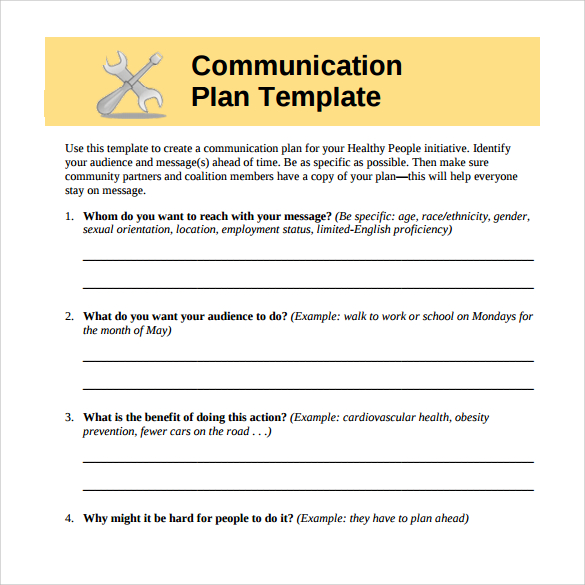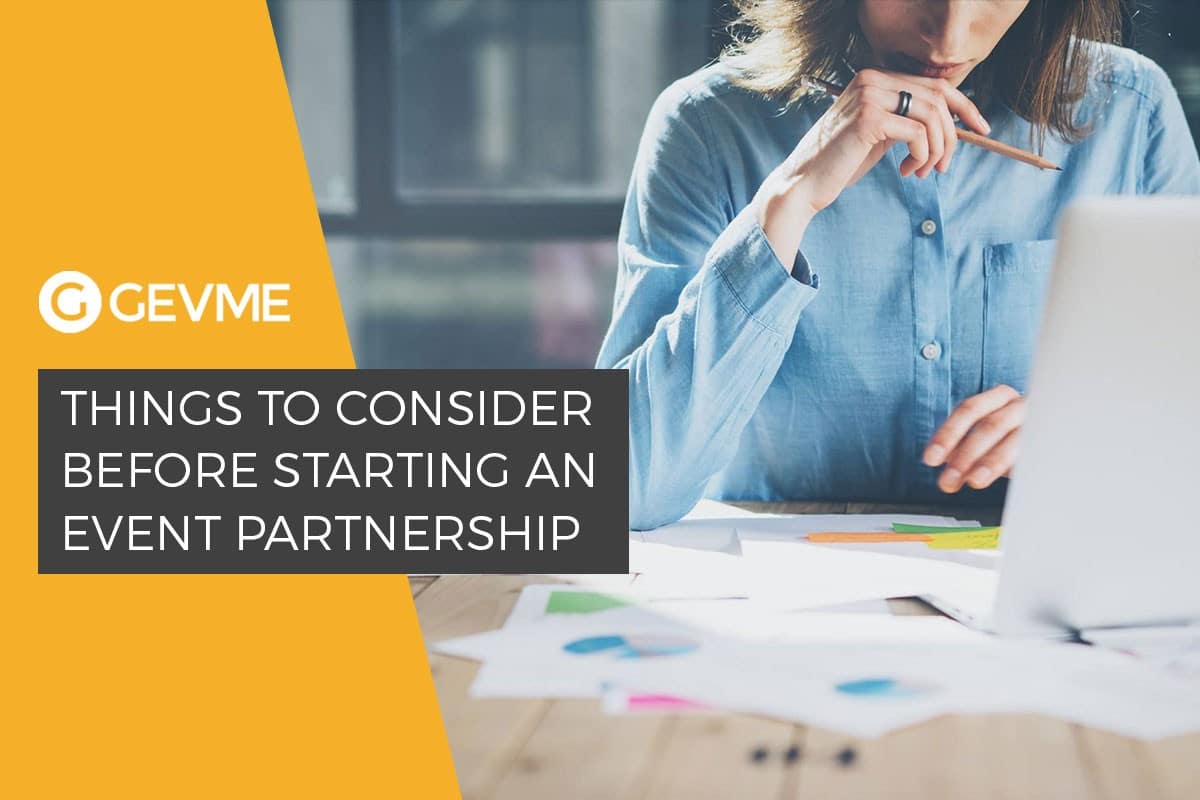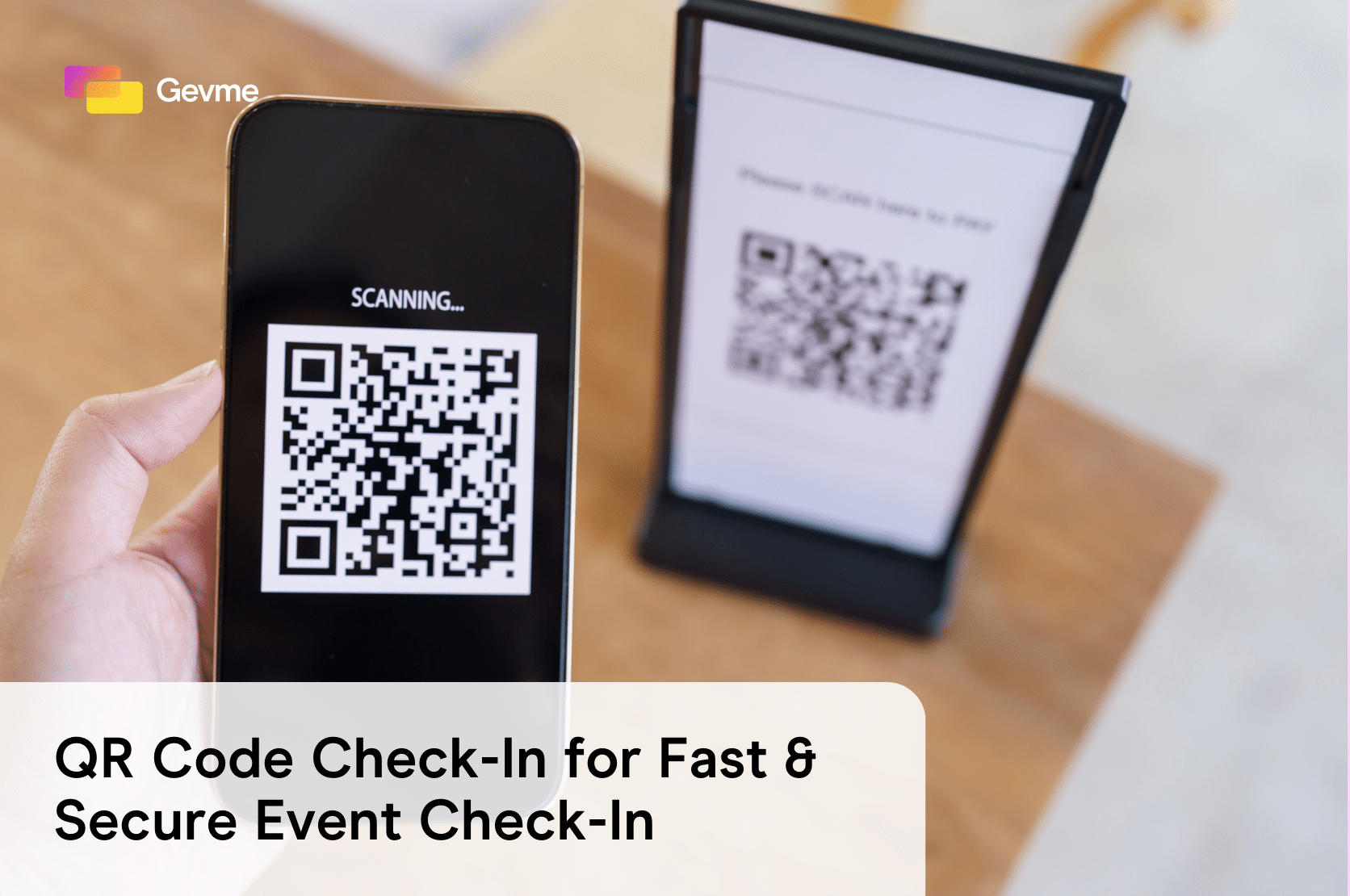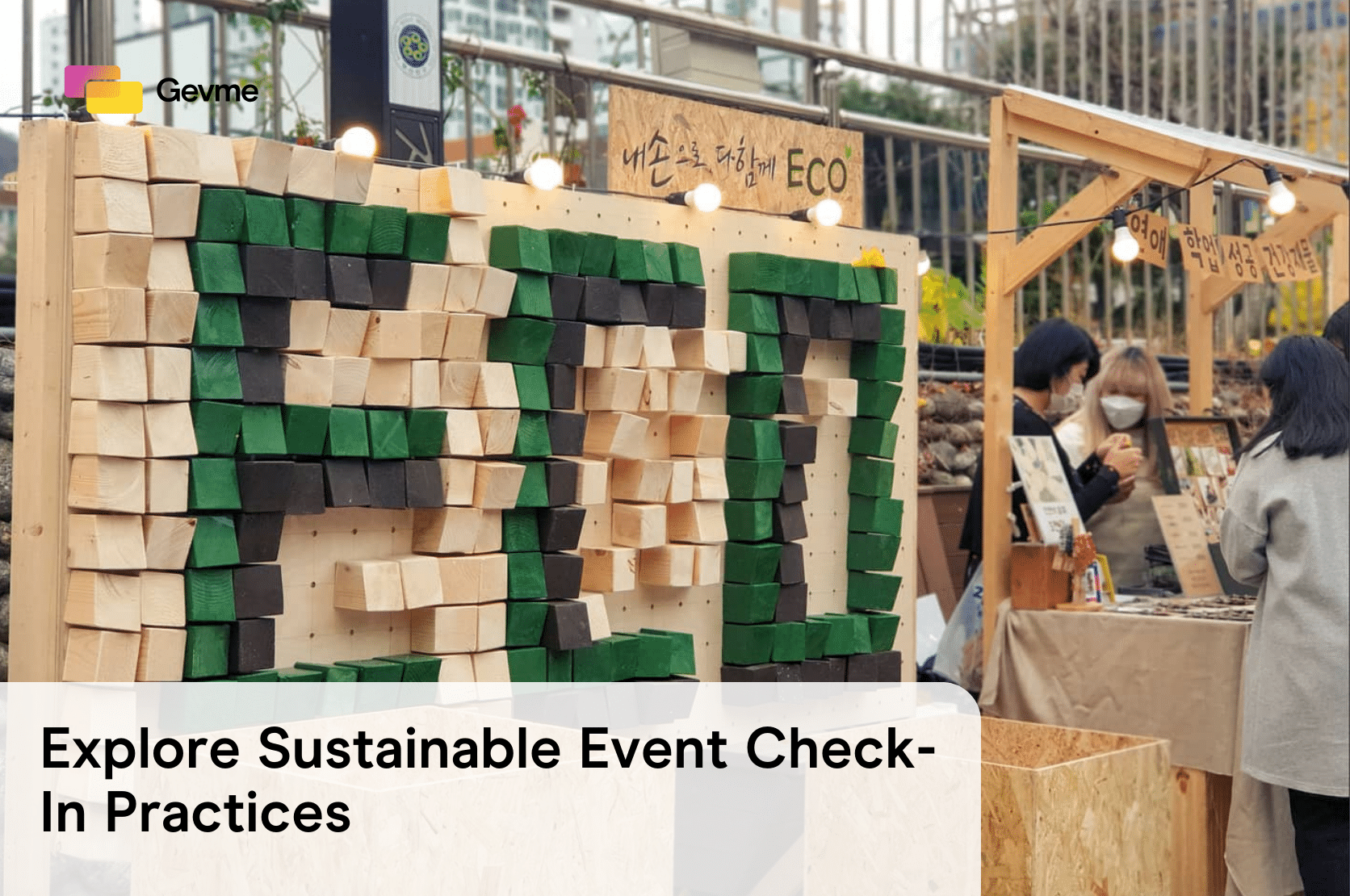For many event managers, sponsors and partners bring a great deal of income. They either make your event profitable or make is so you can invest more in it. No matter your experience in the event industry, searching for event marketing partnerships is still a necessary task.
About the event partnership
A creative event partnership can provide financial stability and future prospects for your event. During the event briefing stage, you should always consider the benefits an event sponsor or partner can bring. A well-managed partnership and collaborating with the right partner can change the outcome of an event for the better: It can help attract new audiences, decrease costs, and increase your brand’s popularity in the events market.
Event partnership vs event sponsor
Before you rush into any event partnership or sponsorship, you need to consider all the pros and cons of future relationships and pay attention to any possible warning signs. When a business gives funds to a local cause or event, for instance, it has sponsored that event. But what is an event partnership?
A partnership means each entity shares in the responsibilities, risks, and earnings of a business arrangement. When two companies collaborate on an event or promotion, for instance, they share these commitments and include them in a mutual event partnership program.
Why do you need a partner?
What is the key to a successful event? What should the event partner be like? What is worth paying attention to? In an ever-changing industry market, expensive advertising tools are being replaced by effective analogues of marketing communications. Clients are becoming even more demanding of contractors, optimising their own costs as much as possible. A well-organised event will have a greater effect and will help in the formation of audience loyalty. And a well-planned event cannot exist without a partnership.
The role of event partners
Events partners, in a nutshell, are incredible and reliable like-minded people who help you bring in new audiences. They can often decrease line items, and they can often make your event look super legit and attractive.
Benefits of event partnerships
coming back for more over and over again. To offer valuable resources aside from the obvious financial benefits, partners can bring other assets, such as networks, media coverage or client lists you can access to increase your brand awareness and succeed.
Challenges and pitfalls
While making up an event partnership agreement, you should also keep in mind the possible challenges. You may face any of the following:
- Different management styles
- Different personal habits interests
- Financial problems and equity issues
- Setting boundaries/limitations
- Commitment/responsibility levels
- Disparities in skills and roles
- Inadequate income share
- Disadvantageous event partnership contract, terms, and other issues
Be ready to negotiate and research.
What you need to know before forming a partnership
So how do you get great partners? The first step is to divide it into stages. Here is some food for thought:
Know the partner for at least a year
Quite rarely, a company that does not have experience in organizing public events can successfully help to organize a large-scale project.
Align your message and values
Every message has a key takeaway that aligns back to your values and your brand. Engage your partners with the values and message that you are trying to deliver.
Come up with a plan that benefits both parties
The ability to make an operational plan, which will not negatively affect the overall implementation of the project, propose alternative solutions that satisfy both the company’s information policy and its marketing tasks is something to look for.
Seek for a perfect soul mate
You have to have a connection with your potential event partner and you both have to have common goals to achieve.
Be prepared for lengthy contracts
Be prepared for lengthy discussions and negotiations with a need of getting a lower price with committing to a long term contract or bigger volume.
Know your partner’s stats
An important role is played by positive customer reviews. You can always find out the details of cooperation by contacting the customer company for which your potential contractor was implementing the project.
Avoid partnering with social contacts or friends
Companies do not partner with social enterprises in ways they partner with others because not all relationships are created equal. Partnerships are initiated by institutions that carefully avoid inviting those partners they cannot fully rely on.
Do they ask questions?
A competent partner before the start of the project will always carry out the necessary analysis of the task and will be able to ask questions, offer the most effective tools and formats for achieving the goals set for the event.
It’s not all about the money
This facilitates communication with the client, helps to build healthy work processes within the executing team, and influences the project in the most positive way.
Trust yourself
Maintaining trust in you takes time, effort, and good communication. Learn to trust yourself by being patient and elf confident in what you do.
How to find a partner
You’re probably wondering how to get a partnership. Here are some ideas:
- Learn how to choose the right partner for your business.
- Tap into your co-worker pool, both past and present.
- Go into business with a friend or a like-minded person.
- Take advantage of networking—either online or through in-person events or a series of events.
- Make an announcement in social media or on your website, via a corporate blog, or any other channels.
- Your local business paper will have a calendar of networking events. Check them out and start searching for your prospective partner.
- Question people from marketing to sponsors, vendors, and beyond if there are any partnerships to choose from.
How to pitch to partners
When pitching to a big event business, first tell your potential partners clearly who you are and what you want from your relationship. Understand the competitive landscape, think globally, and include the following information in your pitch proposal:
- Who you are
- Why you are organising the event
- Who the attendees are
- Who attended it last time
- The size of the event
- The target audience
- Know the numbers
- Previous partners
- Why you need a partner
- Be clear on what you want from a partner
- Be clear on what you have to offer
- Your CTA
A strategic fit is crucial, so do your homework! Put the consumer first, and be honest about the commercial opportunity.
Writing an event partnership proposal
While presenting an event partnership proposal, pay attention to the following items:
- Understand their target audience and business goals.
- Establish the partner’s marketing objectives.
- Understand what you have to offer a partner to benefit.
- Know the person who can say yes to your partnership proposal.
- Choose those who are capable of a trusting relationship.
- Provide a real event plan with well-though partner integration.
- Think of follow-up techniques and further partner promotion for after the event.
Keep in mind that one of the most fundamental keys to getting partnerships is your ability to create a winning partnership proposal and to present it in the right way.
Signing a contract
Partnership agreements are legally binding contracts between business partners. Although they may be not required by state law, even a simple partnership agreement will formalise your partnership’s management structure and protect it from internal disputes. Thus, signing a contract after the partner is finally chosen is a crucial step that will bond your relationship and create certain obligations.
Creating a strong communication plan with your partners
A communication plan is most important to the business. It should be done in the most efficient and effective way; both leaders and partners should align their internal communication strategies and marketing goals, etc. Your communications plan doesn’t need to be long; a few pages is fine. Here’s a plan sample:

How to find a partner?
How to get a partnership? Here are some ideas:
- Learn how to choose the right partner for your business.
- Tap into your co-worker pool, both past and present.
- Go into business with a friend or a like-minded person.
- Take advantage of networking—either online or through in-person events or series of events.
- Make an announcement in social media or website, via corporate blog or any other channels.
- Your local business paper will have a calendar of networking events. Check them out and start searching for your prospective partner.
- Question people from marketing to sponsors, vendors, and beyond if there are any partnership intentions to choose from.
How to pitch partners
Pitching to big event business, first, tell your potential partners clearly who you are and what you want from your relations. Understand the competitive landscape, think globally and include the following information into your pitch proposal:
- Who you are.
- Why you organize the event.
- Who the attendees are.
- Who has attended it last time.
- The size of the event.
- The target audience.
- Know the numbers.
- Previous partners.
- Why you need a partner.
- Be clear on what you want from a partner.
- Be clear on what you have to offer.
- Killing CTA.
Strategic fit is crucial – do your homework! Put the consumer first and be honest about the commercial opportunity.
Writing an event partnership proposal
While presenting an event partnership proposal, pay attention to the following items:
- Understand their target audience and business goals.
- Establish the partners’ marketing objectives.
- Understand what you have to offer a partner to benefit.
- Know the person who can say yes to your partnership proposal.
- Choose those who are capable of trusting relationship.
- Provide a real event plan with well-though partner integration.
- Think of follow up techniques and further partner promotion post event.
Mind that one of the most fundamental keys to getting partnerships is your ability to create a winning partnership proposal and presents it the right way.
Signing a contract
Partnership agreements are legally binding contracts between business partners. Although they may be not required by state law, even a simple partnership agreement will formalize your partnership’s management structure and protect it from internal disputes. Thus, signing a contract after the partner is finally chosen is a crucial step that will bond your relationships and cast certain obligations.
Creating a strong communication plan with your partners
Communication plain is the most important to the business. It should be done in a most efficient and effective way; both leaders and partners should align about internal communication strategies and marketing goals, etc. Your communications plan doesn’t need to be long – a few pages are fine. Here’s a plan sample:

5 tips for successful event partnership
- Choose reasonably
It is worth paying attention to: a list of projects of various formats and sizes presented in the partners portfolio, a pool of verified providers of special services, the professionalism of the team and the competence of each member. When choosing a partner, it is necessary to pay attention to whether the portfolio indicates the experience of implementing the projects required by a potential client.
- Search initiative and competence
These two factors are very important when interacting with a client and should be manifested precisely in a partner. A competent and proactive agency is never afraid to argue, defending their point of view supported by real experience and successes achieved.
- Strive for adequacy
For the contractor, adequacy is a very important feature that can save him/her from unnecessary worries. Adequacy is reflected in the most basic processes of organizing events, they way they are planned and implemented.
- Look for the chemistry
Chemistry is a guarantee of the most durable relationships: love, friendship, partnership. In the event business the chemistry of relationship between the client and the executor must be same present. People should be pleasant to each other, feel sympathy, and be “on the same wave.”
Call to action
Explore Gevme event management platform to improve the way you’re searching, pitching and communications with potential partners.
Conclusion
Choose your partners to be pleasant, business-oriented, motivated and helpful organizations. You should be attracted to them, it must be interesting to communicate with them and work in joint event projects for a long time. Trust your professionalism, intuition, do thorough research, have nice package that stands out, use tips to support your decisions and make a final choice.
What do you think? Feel free with tour ideas.








